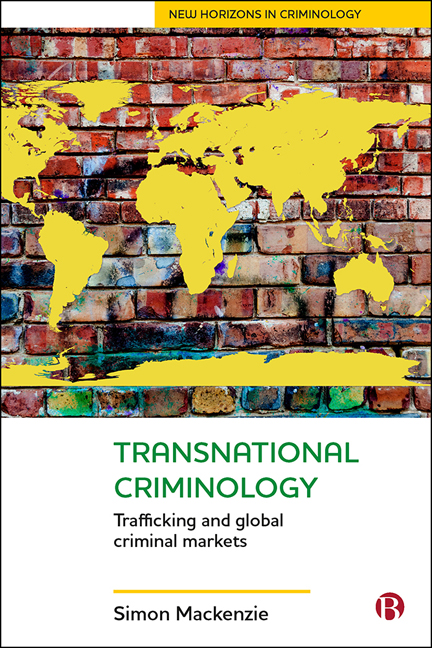Book contents
2 - Drug Trafficking
Published online by Cambridge University Press: 25 February 2021
Summary
The nature and extent of the harm
Drug trafficking is considered to be the largest revenue generator globally among the variety of transnational criminal markets (Reuter 2014), and despite the huge criminal justice infrastructure aimed at reducing drug trafficking, the problem is getting worse. The number of people using drugs worldwide was estimated by the World Drug Report to be 30 per cent higher in 2019 than it was 10 years earlier, in 2009 (UNODC 2019). Globally, 11 million people injected drugs in 2017, while 271 million people were estimated to have used illegal drugs in that year, which is 5.5 per cent of the global population aged between 15 and 64. The harm caused by drug misuse is a continuing global crisis. In the US alone, 47,000 opioid overdose deaths were recorded in 2017, up 13 per cent from 2016. More drugs are being illegally produced than ever before (for cocaine in 2017 a 25 per cent increase on 2016, at 1,976 tons), and more are being seized. Synthetic drugs are a growing part of the problem, with synthetic opioids such as fentanyl finding a market in North America and tramadol in West, Central and North Africa (UNODC 2019).
The picture, as we shall see, is one of a catastrophic failure of law and policy to control this global criminal market. The criminal justice supply-chain intervention approach has not reduced illicit drug consumption despite sometimes very large seizures. At the demand end, government initiatives targeted at treatment and prevention are not reaching enough users, with the 2019 World Drug Report finding that globally only around one in seven people with drug disorders received treatment. The figure is considerably less than this in prisons where clandestine but widespread illicit drug use takes place, usually without access to standard harm-reduction measures such as needle exchange programmes or substitution therapy, giving prisoners an elevated risk of contracting serious diseases like HIV and Hepatitis C (UNODC 2019). Drug policies are a source of racial injustice, such as the much-debated difference in sentencing dispositions for crack versus powder cocaine, the first more likely to be found in the possession of black offenders, the second in the hands of whites.
- Type
- Chapter
- Information
- Transnational CriminologyTrafficking and Global Criminal Markets, pp. 21 - 36Publisher: Bristol University PressPrint publication year: 2020



